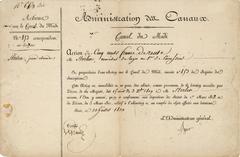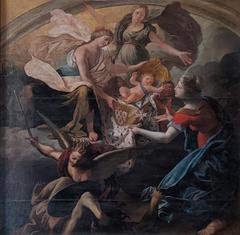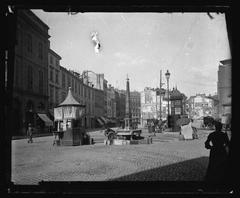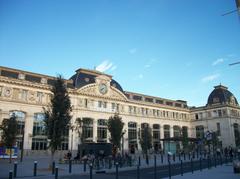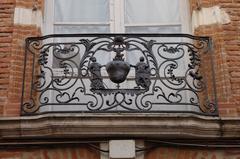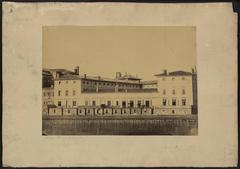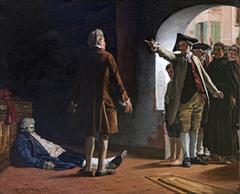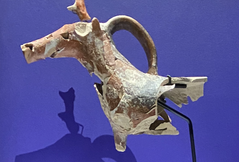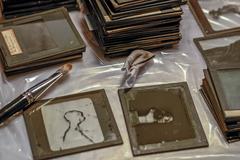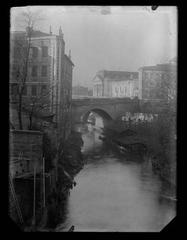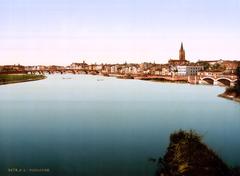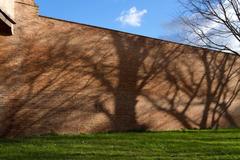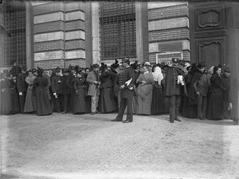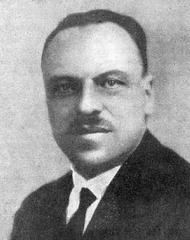Capitole Toulouse Visiting Hours, Tickets, and Guide to Historical Sites
Date: 04/07/2025
Introduction
The Capitole de Toulouse stands as the civic and architectural heart of Toulouse, embodying centuries of local history, governance, and artistry. With origins dating back to the 12th century, this landmark not only houses the city hall but also serves as a hub for cultural events, monumental art, and public gatherings. Its iconic pink brick façade, neoclassical columns, and richly adorned interiors make it a must-see for history lovers, architecture enthusiasts, and travelers alike (Toulouse Tourisme, About-France.com).
Located on the bustling Place du Capitole—one of Europe’s most celebrated urban squares—the Capitole is surrounded by vibrant cafés, shops, and significant historical landmarks. This guide provides a comprehensive overview of the Capitole’s history, visitor information, architectural highlights, and practical tips to make the most of your visit.
Table of Contents
- Historical Overview
- Cultural and Civic Significance
- Key Historical Events
- Artistic Heritage
- Visitor Information
- Travel Tips and Nearby Attractions
- Visuals and Media
- Frequently Asked Questions (FAQ)
- Conclusion and Call to Action
- References
Historical Overview
Origins and Early History
The Capitole was established in the 12th century as the seat of the “capitouls,” the elected magistrates who governed Toulouse. Its name and role reflect the city’s long-standing tradition of self-governance and civic pride. The original building was fortified, representing Toulouse’s independence from feudal and ecclesiastical powers and serving as the administrative, judicial, and commercial center throughout the Middle Ages (Toulouse Tourisme).
Architectural Evolution
Medieval Foundations:
Successive generations expanded the Capitole, transforming it from a simple council house into a complex of halls, towers, and courtyards by the 16th century. The Donjon (archive tower) is a surviving element from this era and now houses the city’s tourist office (frenchmoments.eu).
Neoclassical Transformation:
The most significant change came in the 18th century with the addition of the iconic neoclassical pink brick façade designed by Guillaume Cammas and completed in 1750. The façade’s eight columns symbolize the original eight capitouls, and the central pediment features allegorical sculptures of Justice, Strength, and Wisdom (About-France.com).
19th and 20th Century Additions:
The 19th century saw the creation of the Salle des Illustres, a grand ceremonial hall inspired by Versailles’ Hall of Mirrors, adorned with murals and sculptures by renowned artists, and inaugurated in 1905 (Indotim.net).
Cultural and Civic Significance
The Capitole remains the seat of Toulouse’s city government, hosting the mayor’s office, municipal council, and numerous civic events. It is also home to the Théâtre du Capitole, one of France’s leading opera houses, and serves as a venue for weddings, receptions, and cultural exhibitions (Toulouse Tourisme, Opéra du Capitole).
The Place du Capitole, adorned with the Occitan cross, is a central gathering spot for festivals, markets, and public celebrations, reinforcing the Capitole’s role as a living symbol of Toulouse’s heritage (France.fr, World City Trail).
Key Historical Events
- Cathar Period: The Capitole was at the center of Toulouse’s resistance during the Albigensian Crusade in the 13th century.
- Execution of the Duke of Montmorency (1632): Henri II de Montmorency was executed in the Capitole’s courtyard for rebelling against King Louis XIII (Toulouse Tourisme).
- Jeux Floraux: The world’s oldest literary society, founded in 1323, held annual poetry competitions at the Capitole.
Artistic Heritage
- Salle des Illustres: This ceremonial hall features monumental murals and sculptures celebrating Toulouse’s great figures and pivotal events (Indotim.net).
- Gallery of Arcades: Open-air gallery on Place du Capitole with painted panels depicting the city’s history (Toulouse Tourisme).
- Théâtre du Capitole: Renowned for opera, ballet, and classical music, with its own gilded interiors and artistic legacy (France.fr).
Visitor Information
Opening Hours
- Capitole Public Areas:
- Winter: 8:00–18:00
- Spring & Autumn: 8:00–20:00
- Summer: 8:00–21:00
- Salle des Illustres and Ceremonial Rooms:
- Generally open Monday to Friday, 8:30–17:00; may close during official events (Itinerary Expert).
- Théâtre du Capitole: Separate hours for performances.
Tickets and Entry
- Admission: Free to public areas, including most ceremonial rooms.
- Guided Tours: Available for a fee; recommended for deeper historical and artistic insights. Reserve via the tourist office or online.
- Théâtre du Capitole Performances: Tickets required, purchase in advance.
Accessibility
- Wheelchair accessible with ramps and elevators.
- Information available in French, English, and Spanish (laramoneta.com).
Special Events
- Annual festivals (e.g., Fête de la Musique, Christmas Market)
- Donjon du Capitole’s 500th anniversary in 2025 with special exhibitions (Toulouse Tourisme).
Travel Tips and Nearby Attractions
- Best Time to Visit: Early mornings or late afternoons on weekdays.
- Transport:
- Metro Line A (Capitole station), multiple bus lines.
- Paid parking under Place du Capitole.
- Nearby Sights: Basilica of Saint-Sernin, Jacobins Convent, Victor Hugo Market, Garonne River banks (trip101.com).
- Dining & Shopping: Numerous cafés, restaurants, and pop-up markets around the square (toulousesecret.com).
Visuals and Media
Explore high-quality images and virtual tours on the official tourism website. Use search terms like “Capitole Toulouse visiting hours” for optimal results. Maps and interactive guides are available to plan your visit.
Frequently Asked Questions (FAQ)
Q: Are tickets required for entry?
A: No, general admission is free; guided tours and theater performances require booking.
Q: What are the Capitole’s visiting hours?
A: Hours vary by season; check the official website for details.
Q: Is the Capitole accessible for people with disabilities?
A: Yes, most public areas are accessible.
Q: Can I take photographs inside?
A: Yes, in public areas; flash may be restricted to protect artworks.
Q: Are guided tours available?
A: Yes, bookable via the tourist office or online.
Conclusion and Call to Action
The Capitole de Toulouse is not just a historical monument but a vibrant center of civic and cultural life. Its neoclassical architecture, grand interiors, and dynamic square offer a captivating glimpse into the city’s storied past and contemporary spirit. Take advantage of free admission, consider a guided tour for deeper insights, and explore the surrounding historical sites and local cuisine for a complete Toulouse experience.
For up-to-date information, guided tours, and exclusive insights, download the Audiala app and follow Toulouse tourism on social media. Embark on your journey through Toulouse’s cultural heart and create unforgettable memories at the Capitole.

